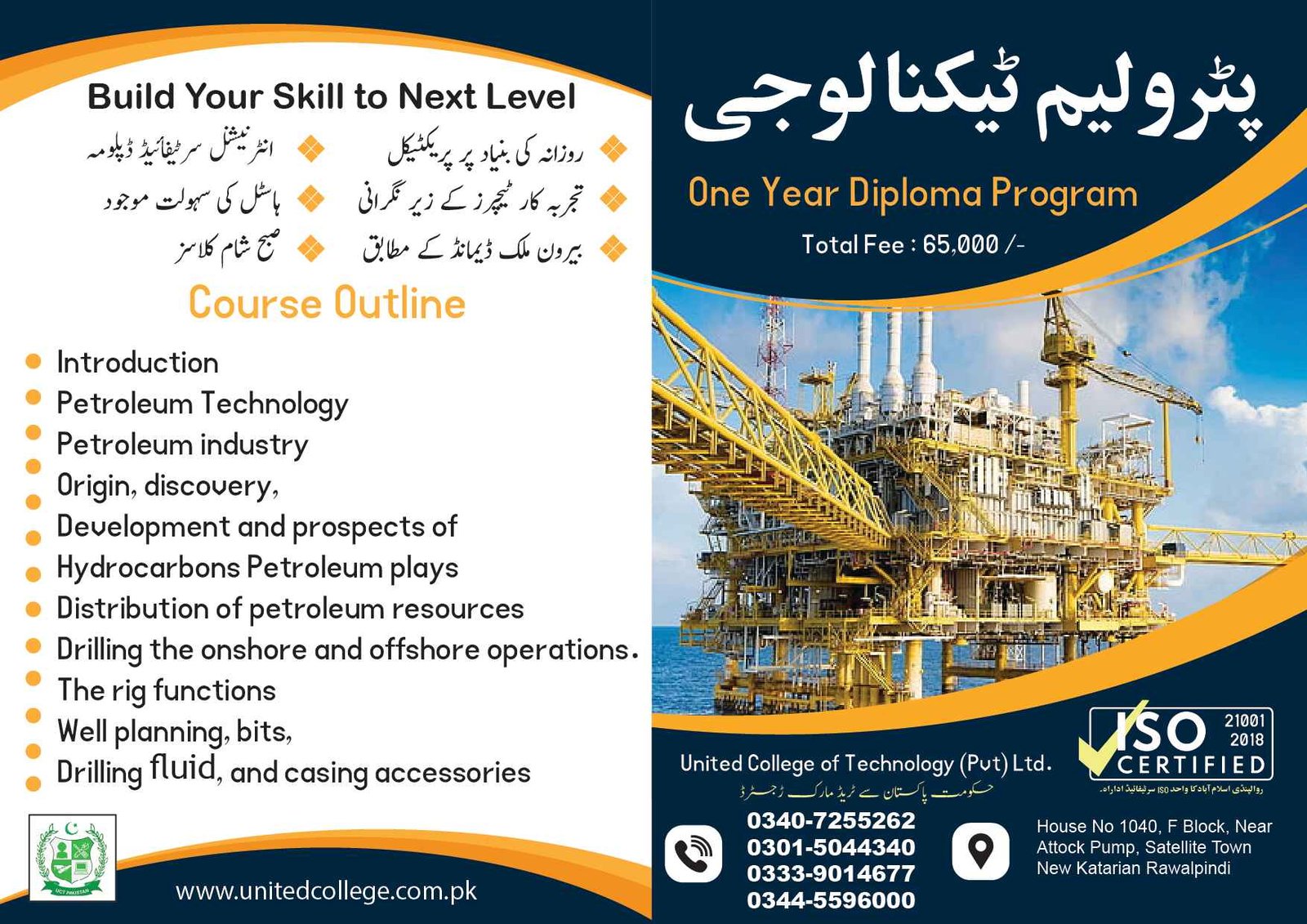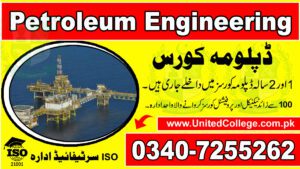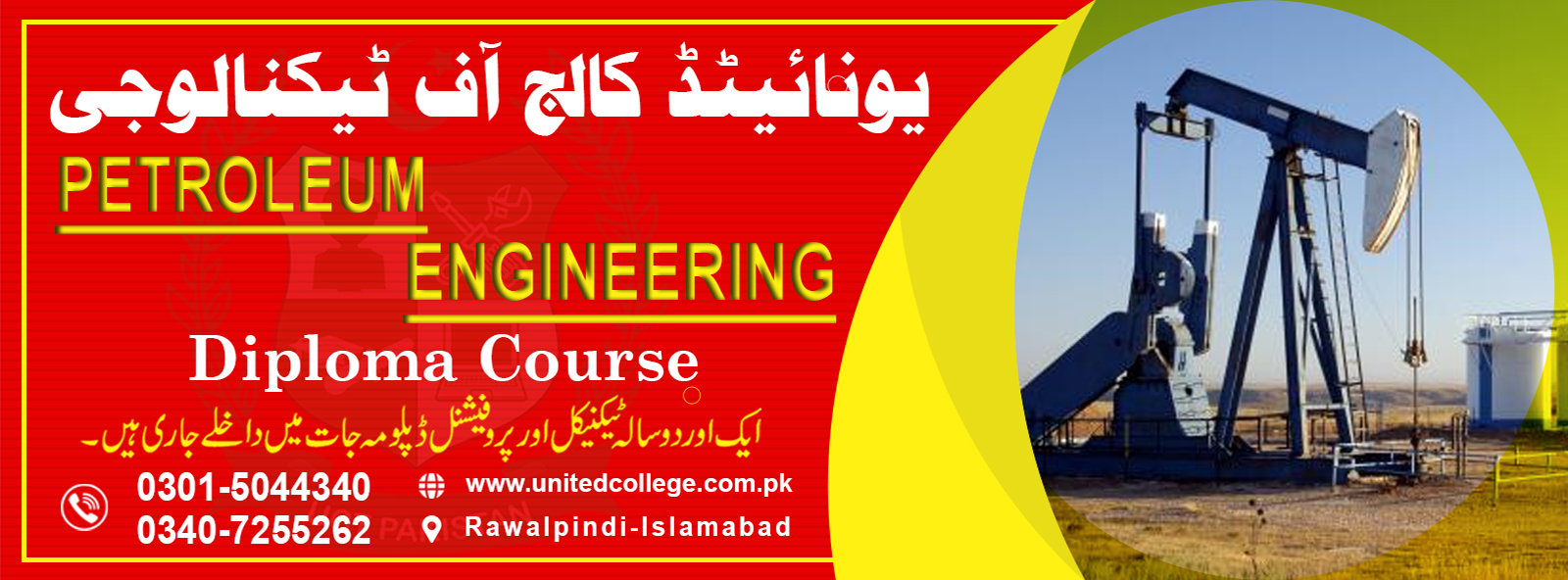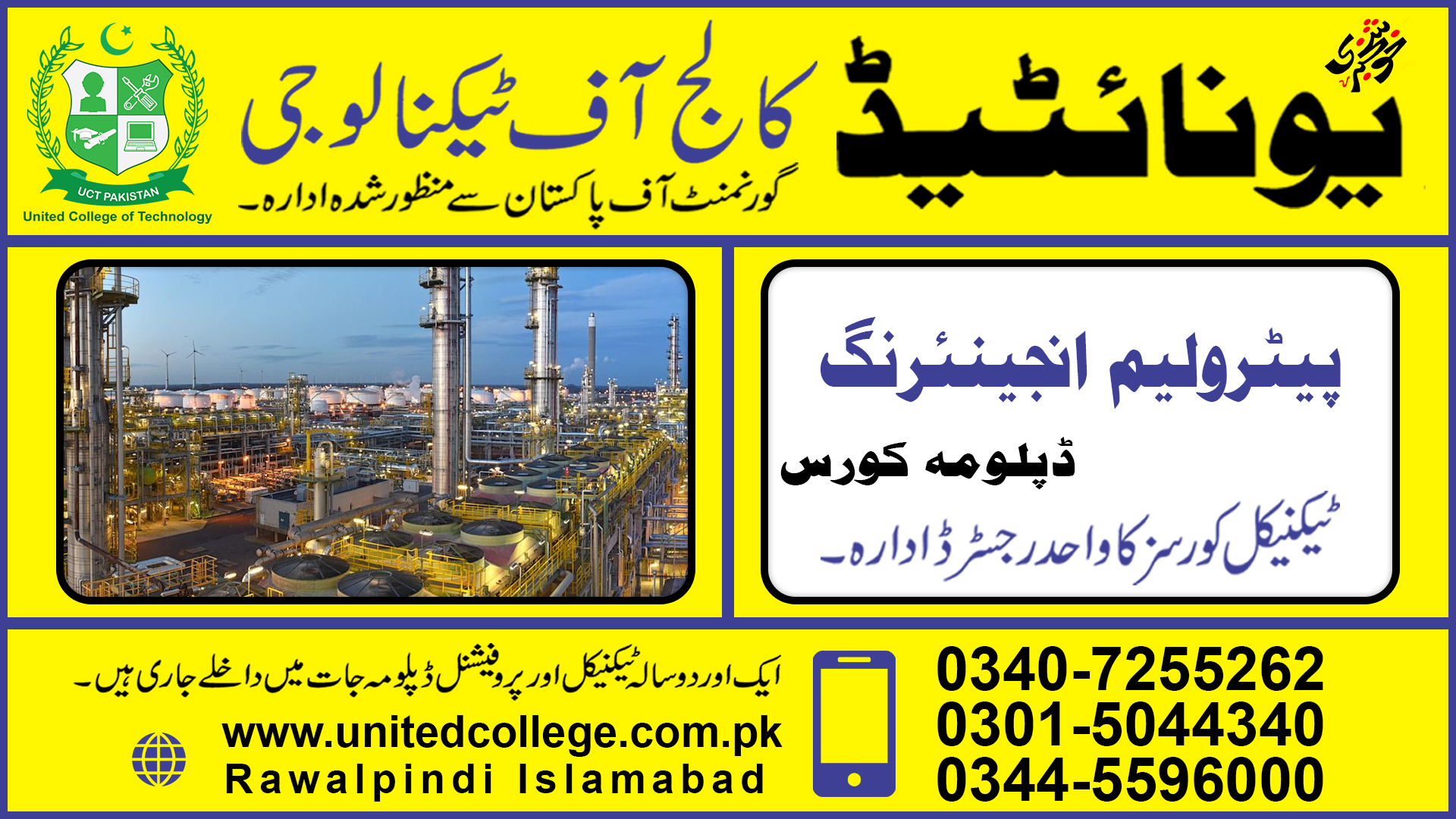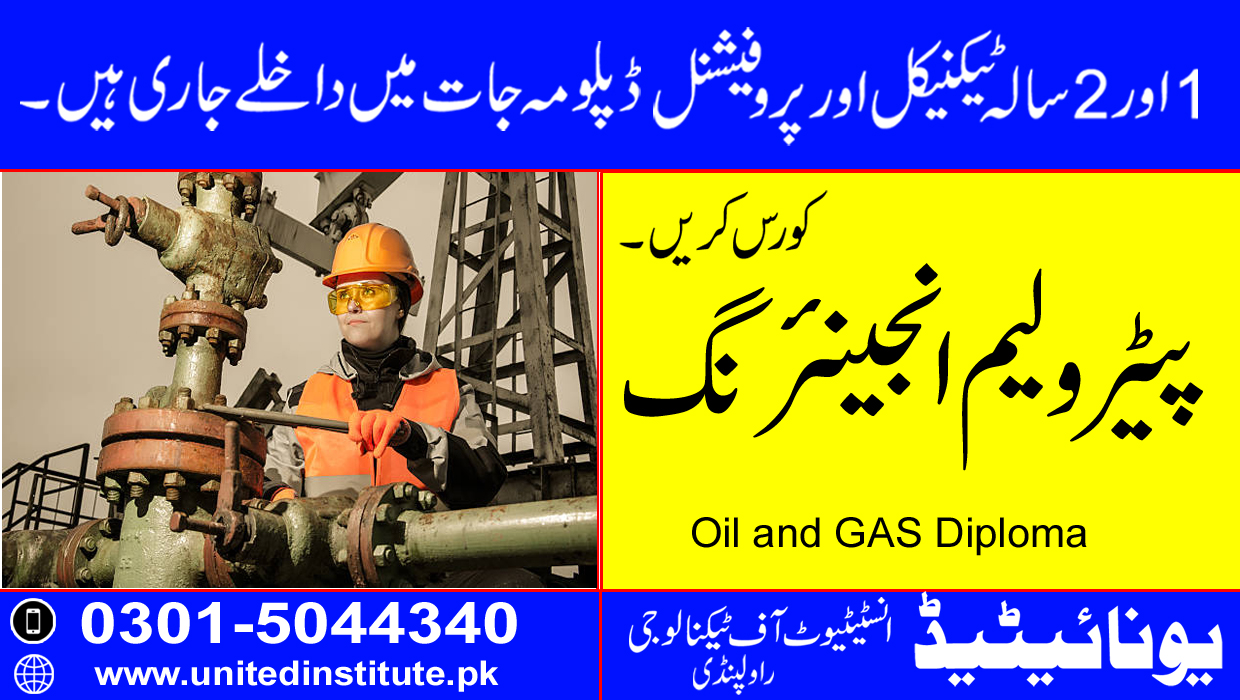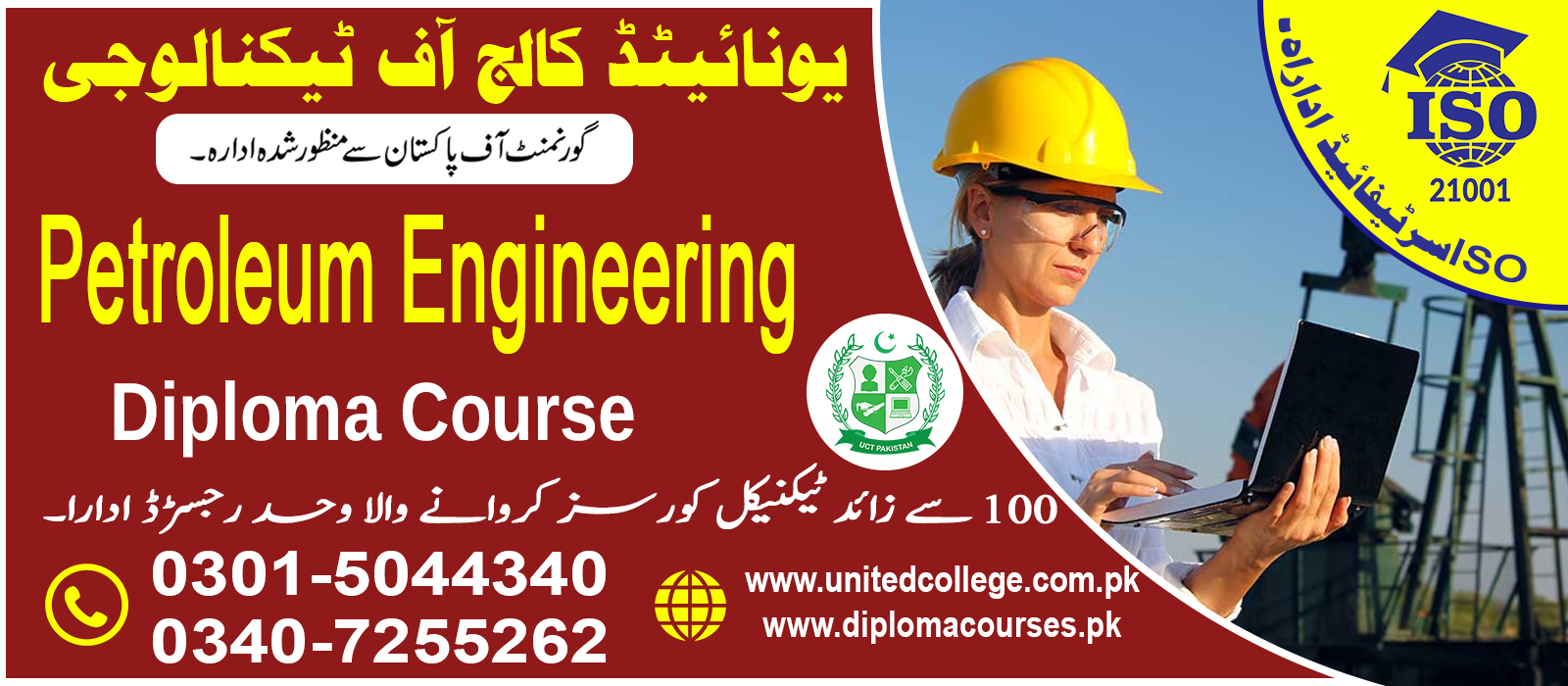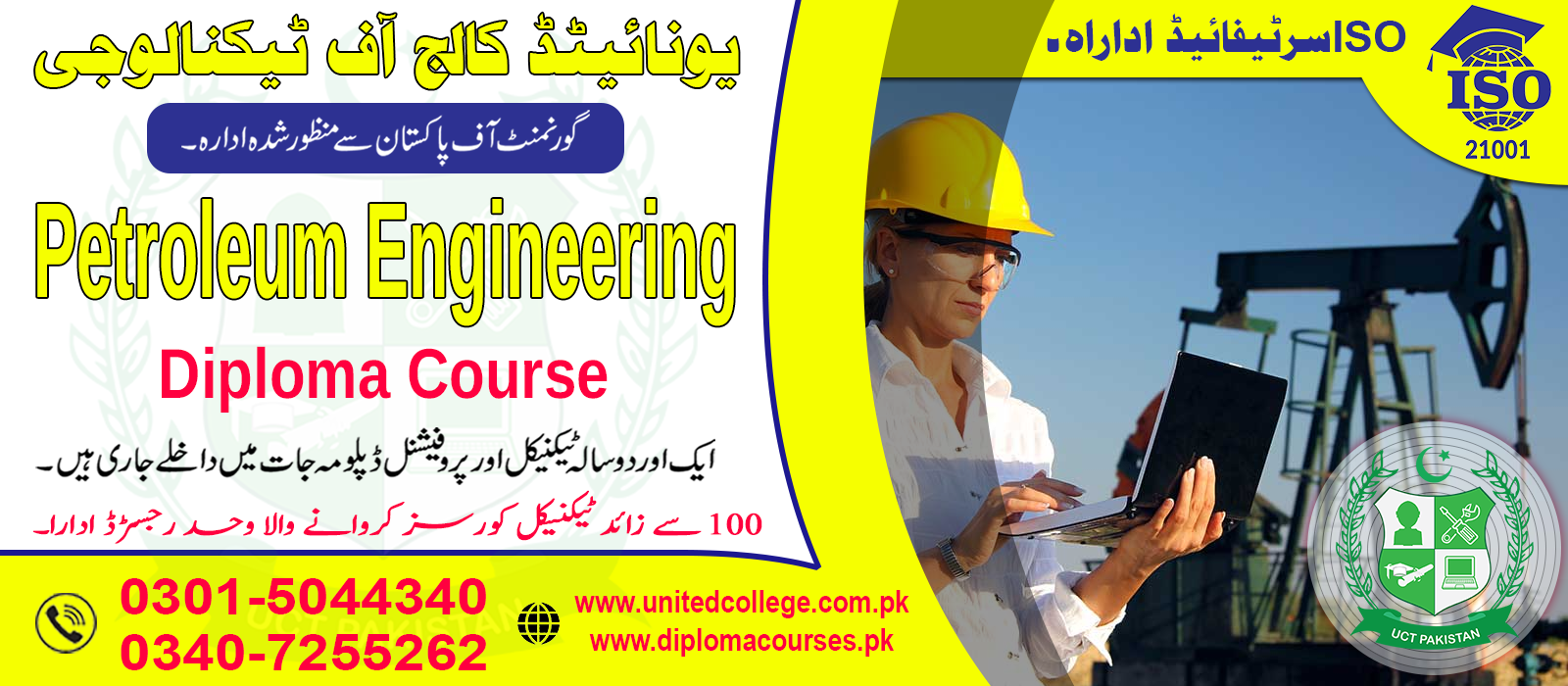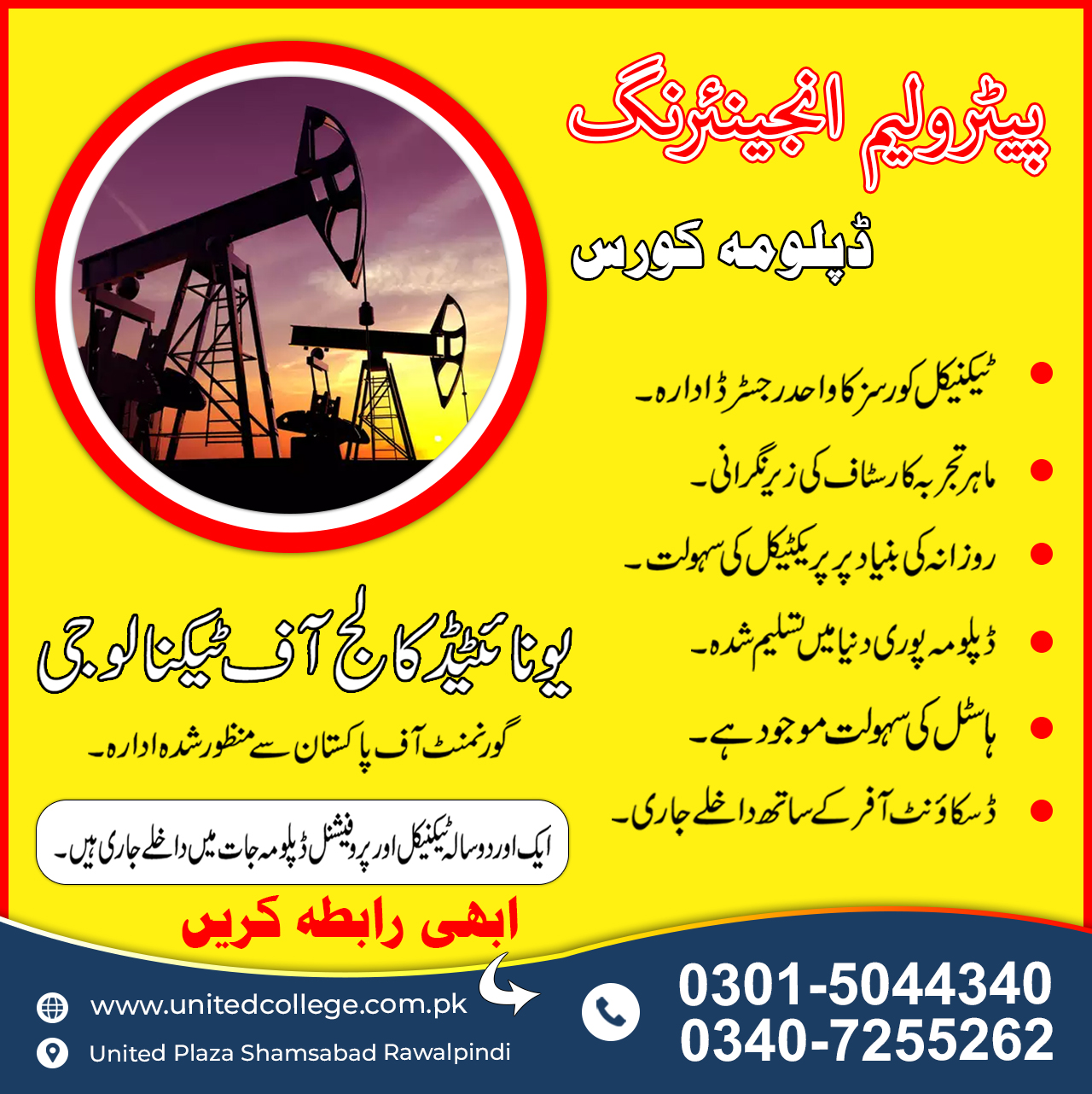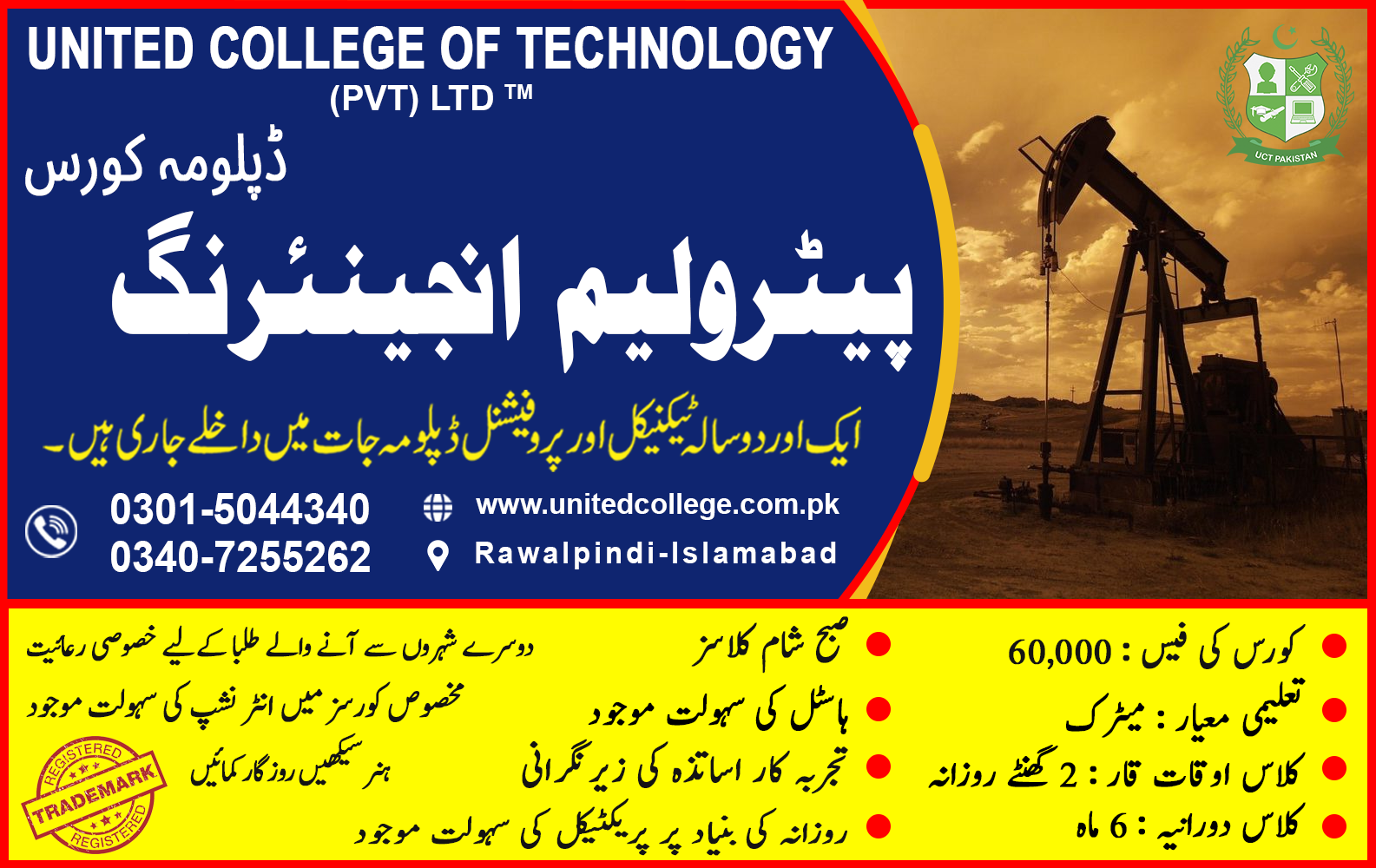Petroleum Engineering Diploma Course in Rawalpindi Islamabad 0301-5044340
Introduction:
Petroleum engineering is a relatively new development in the sphere of technical education that is gaining popularity among the youthful masses. The study covers topics such as economics, geology, geochemistry, geophysics, oil drilling, geopolitics, knowledge management, seismology, tectonics, thermodynamics, well logging, well completion, oil and gas production, reservoir development, and pipelines.
Diploma in Petroleum Engineering:
The Diploma in Petroleum Engineering is a two-year program divided into four semesters. Petroleum engineering is concerned with the large-scale production of crude oil or natural gas. In this course, students learn about various new advances and how to use them. United College of Technology
Career Opportunities:
Petroleum Engineering is in high demand in Pakistan. As a result, a career in this profession is both appealing and demanding.
Petroleum Engineering Course Content:
- Introduction
- Petroleum engineering
- Petroleum industry
- Origin, discovery,
- Development and prospects of
- Hydrocarbons from petroleum play
- Distribution of petroleum resources
- Drilling the onshore and offshore operations.
- The rig functions, well planning, bits, drilling fluid, and casing accessories
Why is United College best for this course?
Welcome to United College of Technology Rawalpindi, where innovation meets education and dreams take flight. Nestled in the heart of Rawalpindi’s bustling landscape, our college stands as a beacon of excellence in technical and vocational education. At United College of Technology Rawalpindi, we are committed to nurturing the next generation of skilled professionals who will shape the future of various industries. With a focus on practical learning, industry partnerships, and cutting-edge curriculum, we empower our students to thrive in a rapidly evolving world.
Our state-of-the-art facilities provide the perfect environment for hands-on learning and exploration. From modern workshops equipped with the latest technology to dedicated labs and research centers, we offer students the tools they need to succeed.
But what truly sets us apart is our passionate faculty, comprised of industry experts and experienced educators who are dedicated to helping students reach their full potential. With personalized attention and mentorship, we ensure that every student receives the support they need to excel academically and professionally. Whether you’re pursuing a career in engineering, information technology, or any other field, the United College of Technology Rawalpindi is your gateway to success. Join us as we embark on a journey of discovery, innovation, and endless possibilities.
Petroleum Engineering Diploma Petroleum Engineering Diploma Petroleum Engineering Diploma Petroleum Engineering Diploma Petroleum Engineering Diploma Petroleum Engineering Diploma Petroleum Engineering Diploma Petroleum Engineering Diploma Petroleum Engineering Diploma
Urdu Course Detail
:تعارف
ِپیٹرولیم انجینئرنگ تکنیکی تعلیم کے شعبے میں نسبتاً نئی ترقی ہے جو نوجوانوں میں مقبولیت حاصل کر رہی ہے۔ اس مطالعہ میں معاشیات، ارضیات، جیو کیمسٹری، جیو فزکس، آئل ڈرلنگ، جیو پولیٹکس، نالج مینجمنٹ، سیسمولوجی، ٹیکٹونکس، تھرمو ڈائنامکس، کنواں لاگنگ، کنویں کی تکمیل، تیل اور گیس کی پیداوار، ذخائر کی ترقی، اور پائپ لائنز جیسے موضوعات کا احاطہ کیا گیا ہے۔
ِ
پیٹرولیم انجینئرنگ میں ڈپلومہ:
پیٹرولیم انجینئرنگ میں ڈپلومہ ایک دو سالہ پروگرام ہے جسے چار سمسٹرز میں تقسیم کیا گیا ہے۔ پیٹرولیم انجینئرنگ کا تعلق خام تیل یا قدرتی گیس کی بڑے پیمانے پر پیداوار سے ہے۔ اس کورس میں طلباء مختلف نئی پیشرفتوں اور ان کے استعمال کے بارے میں سیکھتے ہیں۔ یونائیٹڈ کالج آف ٹیکنالوجی
ِ
پاکستان میں پیٹرولیم انجینئرنگ کی بہت زیادہ مانگ ہے۔ نتیجے کے طور پر، اس پیشے میں ایک کیریئر اپیل اور مطالبہ دونوں ہے.
ِپیٹرولیم انجینئرنگ کورس کا مواد:
تعارف
پیٹرولیم انجینئرنگ
پیٹرولیم انڈسٹری
اصل، دریافت،
کی ترقی اور امکانات
پٹرولیم پلے سے ہائیڈرو کاربن
پیٹرولیم وسائل کی تقسیم
سمندری اور غیر ملکی آپریشنز کی کھدائی۔
رگ کے افعال، اچھی طرح سے منصوبہ بندی، بٹس، سوراخ کرنے والی سیال، اور کیسنگ لوازمات
Course Fee
| Course Duration | Class Timing | Admissions | Fee |
| 6 Months | Morning Evening |
Open | 65,000 Advance |
| Contact Us At | Address | |
| 0340-7255262 0301-5044340 |
0344-5596000 0333-9014677 |
House No 1040, F Block, Near Attock Pump, Satellite Town New Katarian Rawalpindi |
